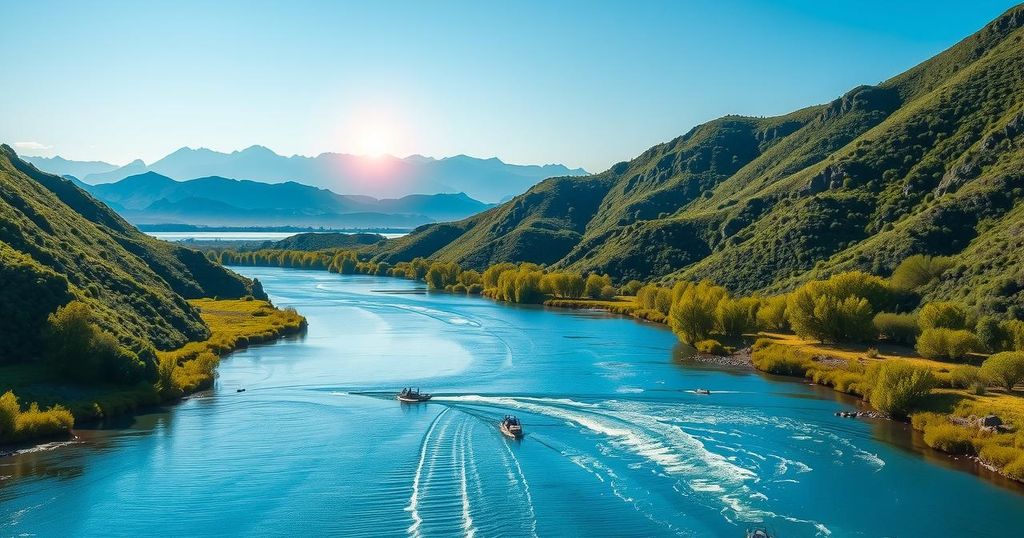African leaders are urging military discussions to establish a ceasefire in eastern DRC, following a summit in Tanzania. They called for an immediate meeting between commanders of the M23 group and Congolese forces. The conflict has resulted in significant casualties and displacement, with over 3,000 reported dead. UN officials warn of the broader regional implications of the conflict.
African leaders are presently awaiting a response to their call for military discussions aimed at achieving a ceasefire in eastern Democratic Republic of Congo (DRC). This initiative follows a two-day summit in Dar es Salaam, Tanzania, where leaders from approximately two dozen eastern and southern African nations urged both the Congolese government and the M23 armed group to convene and establish terms for an immediate and unconditional ceasefire.
During the summit, the leaders emphasized the urgent need for the commanders of both sides to meet within five days to negotiate peace terms, while also calling for the establishment of humanitarian corridors to facilitate the evacuation of casualties. The discussions included Rwandan President Paul Kagame and Congolese President Félix Tshisekedi, with Kagame in attendance and Tshisekedi participating via video conference.
The ongoing conflict has escalated, with M23 fighters having seized Goma, the largest city in eastern DRC, and continuing their advance into neighboring South Kivu. The United Nations reports that an estimated 3,000 individuals have lost their lives in the conflict, alongside thousands more who have been injured or displaced.
A recent UN report highlighted that Rwanda allegedly maintains around 4,000 troops within DRC and is benefiting from the illicit trade of minerals such as gold and coltan, used in electronics. Conversely, Rwanda accuses DRC of harboring the Democratic Forces for the Liberation of Rwanda (FDLR), a group responsible for perpetrating atrocities during the 1994 Rwandan genocide.
In light of these developments, UN rights chief Volker Turk expressed grave concerns about the escalating conflict, stating, “If nothing is done, the worst may be yet to come for the people of the eastern DRC but also beyond the country’s borders.” The recent initiative to address the conflict was undertaken under the auspices of the East African Community and the Southern African Development Community.
President William Ruto of Kenya, who leads the East African Community, called upon all parties, specifically the M23, to halt advances, and for Congolese armed forces to cease retaliatory actions. A prior meeting between Kagame and Tshisekedi, intended to finalize a peace agreement in Angola last December, was ultimately canceled amid mutual accusations of responsibility.
UN Secretary-General Antonio Guterres has called for collaborative efforts from both parties to negotiate a ceasefire, warning that the conflict poses a risk to the stability of the entire region. He emphasized that the situation is at a critical juncture, necessitating urgent action from all involved parties.
The situation in the eastern Democratic Republic of Congo is characterized by ongoing violence primarily between the M23 armed group and Congolese government forces. This conflict has led to a significant humanitarian crisis, with thousands killed and many others displaced. Various summits and peace talks have been attempted in the past to resolve the conflict, but results have largely been unsuccessful, prompting current regional leaders to intervene in search of a sustainable peace agreement. The involvement of international entities, including the United Nations, indicates the global significance of the regional stability and humanitarian considerations at stake.
In summary, African leaders are actively seeking to mediate peace between the M23 armed group and the Congolese government through a coordinated call for immediate dialogue and ceasefire negotiations. The escalation of violence necessitates urgent intervention, and the leaders hope to stabilize the region while providing humanitarian relief for the affected populations. The international community’s support remains crucial as diplomatic efforts continue to unfold.
Original Source: www.rfi.fr






